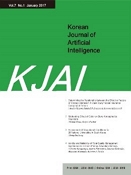- 권한신청
- E-ISSN2508-7894
- KCI
A Study on Comparison of Lung Cancer Prediction Using Ensemble Machine Learning
SHIN, Won-Ji (Dept. of Radiological Technology, Eulji University)
Abstract
Lung cancer is a chronic disease which ranks fourth in cancer incidence with 11 percent of the total cancer incidence in Korea. To deal with such issues, there is an active study on the usefulness and utilization of the Clinical Decision Support System (CDSS) which utilizes machine learning. Thus, this study reviews existing studies on artificial intelligence technology that can be used in determining the lung cancer, and conducted a study on the applicability of machine learning in determination of the lung cancer by comparison and analysis using Azure ML provided by Microsoft. The results of this study show different predictions yielded by three algorithms: Support Vector Machine (SVM), Two-Class Support Decision Jungle and Multiclass Decision Jungle. This study has its limitations in the size of the Big data used in Machine Learning. Although the data provided by Kaggle is the most suitable one for this study, it is assumed that there is a limit in learning the data fully due to the lack of absolute figures. Therefore, it is claimed that if the agency's cooperation in the subsequent research is used to compare and analyze various kinds of algorithms other than those used in this study, a more accurate screening machine for lung cancer could be created.
- keywords
- Lung Cancer, Machine Learning, Two-Class Support Vector Machine, Two-Class Decision Jungle, Multi-Class Decision Jungle
- 다운로드 수
- 조회수
- 0KCI 피인용수
- 0WOS 피인용수














